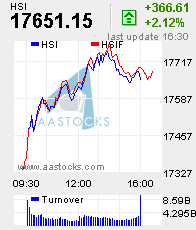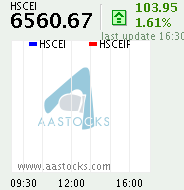The introduction of “Goods and Services Tax” is NOT suitable for Hong Kong SAR as the poor or disadvantaged and the retired persons will be suffered more, as the tax is regressive in nature.
Goods and Services Tax (GST or sales tax) is based on the transaction amount. The tax rate of GST tax is regressive in nature. That means the rate of such taxation is higher for the lower income group than that for the higher income group.
Nowadays the countries like United States, France, Singapore, Australia, Thailand, etc. are implementing such GST and the tax rate ranged from 3% to 15% per month.
In terms of the benefits and drawbacks after the implementation of GST are as follows in brief:
Benefits --- It broadens the tax base, as consumers will have to pay more tax as they spend. Tax evasion seems to be unlikely and the SAR government revenues will be assured no matter in time of economic boom or recession.
Drawbacks --- The burden on the poor and retired will be surely heavier than before no matter there will be tax concession or not. Such reputation of shopping paradise as enjoyed by Hong Kong will no longer exist. The corresponding increase in the retail prices will suppress local and foreign consumption. Our tourist industry will be hurt. In turns our GDP may be hurt since quite a significant share of contribution comes from the tourist revenues. Hong Kong is no longer a tax haven. The competitive edge of such so-called simple tax system prevailing in Hong Kong may disappear then. The poor and retired may continue to be suffered from the curse of high tax rate since the tax is regressive in nature.
I think even how Hong Kong restructuring its economy in the future, the fundamental of Hong Kong economy lies on the tertiary production that we cannot undermine the importance of the services and sales sector.
In a nutshell, the introduction of GST by our government is unwise. The GST is bound to weaken the competitiveness of Hong Kong's economy.
Once the GST is introduced it is hardly for the government to reverse it. And I worry our government may be more extravagant and spend more then. In fact, Hong Kong government currently earns more than 100 billion dollars a year from taxation, as many countries are really lagging behind that. Moreover, the revenue received seems not to be shrinking in the near future. I wonder what is the philosophy behind for the introduction of such GST. Once it is passed, it symbols there will be a fundamental change in the tax revenue structure of Hong Kong.
It is ridiculous that our government allegedly concerns poverty alleviation on one hand and changes the basic taxation policy on the other, as regressive tax nature seems to be strengthened.
Regressive taxation will surely lead to the scenario of so-called“robbing the poor to pay the rich”. No way! I, being a retired person, am so disappointed and outraged if the GST is really introduced in the future. I will be just helplessly to yell “Long live the GST, Long live our Government!” if I still stay in this lovely territory, HKSAR.
NOTE: The above article on the government proposed goods and sales tax has been submitted to the HKSAR's Financial Secretary, Henry Tang.
http://wongtc.blogspot.com/Copyright Reserved by tcwong©










